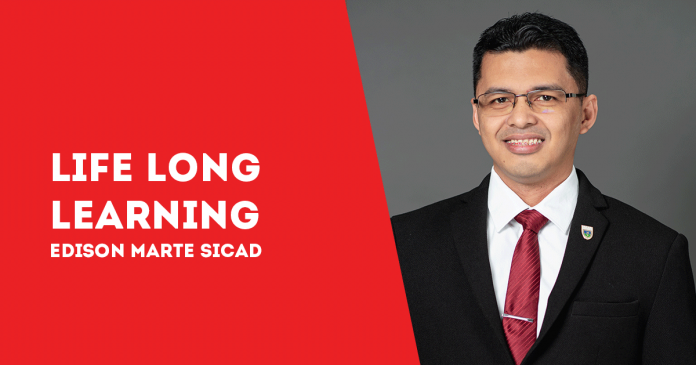
BY EDISON MARTE SICAD
WITH THE advancement of technology comes the challenge of authenticity. I am referring here more to the integrity of a written output submitted by a student or a professional.
If before, the main question is “From whom did you copy this?”; now, how about if the source or the accomplice is technology itself, specifically Artificial Intelligence?
If before, a complain can be heard from the original writer that someone else copied his or her work. Now, how do you deal with a computer-generated essay? Since the source or the original “writer” is not affected by such plagiarism?
In a sense, the idea of plagiarism is that we have to show respect, even utmost reverence, to the intellectual property of others. For it is no easy task to commit oneself into writing something that requires originality — and honesty.
Writing takes time and effort—add to that the financial considerations. For someone to just copy-paste is a violation of the writer’s right. To most writers, such a right is the only thing left in them. Their very existence is associated with the fulfillment of finishing an article, a book, a research output. Their words are their worlds. The only thing they can share. But with such sharing comes the access to their works: to be read, spread, and copy-pasted.
But “educational” apps are not into this. In fact, such apps are advertised — and they are free. And it frees the user (pun intended) from the initial hard work of gathering related literature and scanning numerous articles and books. It saves time and effort—also taking into consideration the financial aspect of the writing process.
Why run if you can walk?
The logic is ironically correct. Why spend so much effort in doing something if the same—if not a better — result can be had when technology is used? Is this not a skill taught in schools? Computer literacy and being efficient and effective?
I am not anymore going to question why people plagiarize. Human nature—or the human brain itself—would naturally go for the easy route. Generally, a human being is a walking convenient store.
What I am impressed about is that there are still those who, despite the presence of these “educational” apps, would choose to take the difficult path. And educate themselves even as to the process of completing a written output.
This is not to say that apps such as ChatGPT have no place in the writing environment. In the first place, such apps have already invaded the academe and the writing community. Eventually, a computer-generated written output will be able to write with nuance and sense. The field of artistic expressions are now synergized — if not tainted. In one instance, a computer-generated photograph won in a prestigious photography contest. No one knew — not even the organizers and the judges — that the image titled “The Electrician” was not a photograph, it was an AI-generated image. It was submitted by photographer Boris Eldagsen who, after receiving the award, told (warned) the audience that this scenario could (and it did) happen.
How about in writing? Can it get to the point that a student will win a writing contest because of AI?
Eventually, competence is anchored on integrity; the value of virtues: something that cannot be generated by a computer./PN




